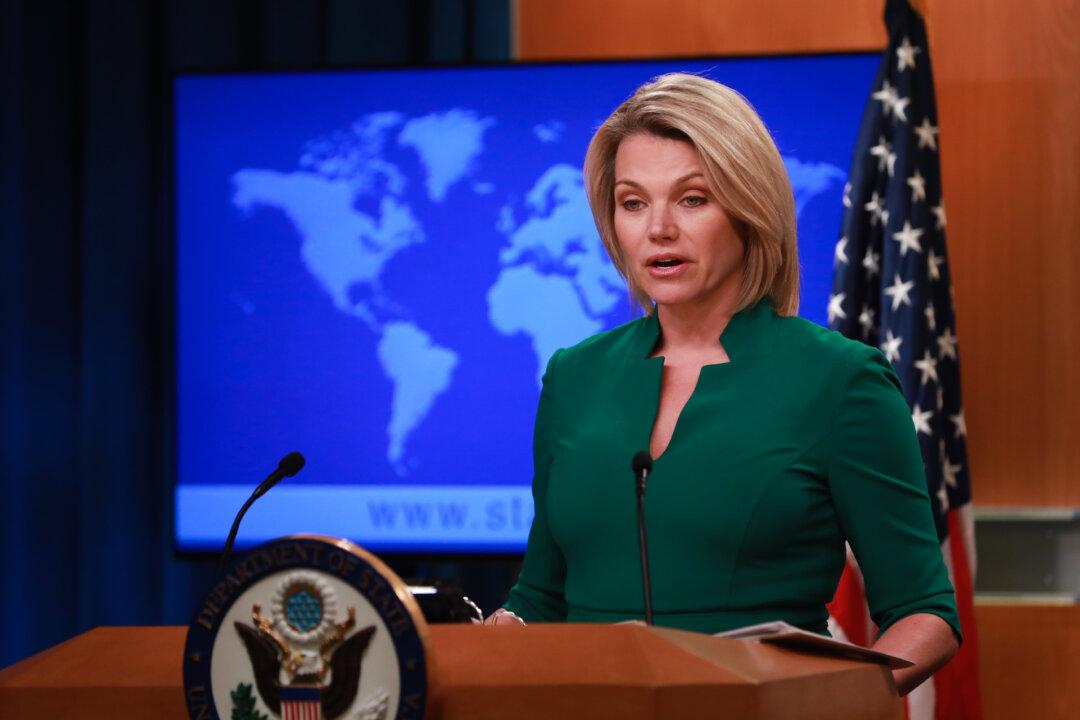The State Department says it’s “not in the least” discouraged after Iranian officials dismissed President Donald Trump’s remark that he’s willing to meet with the Islamic state without any preconditions.
“They’re certainly entitled to do that,” spokeswoman Heather Nauert said during a July 31 press conference. “We prefer diplomacy, they prefer to export their malignant behavior around the world, as we have seen them do for many, many decades.”





